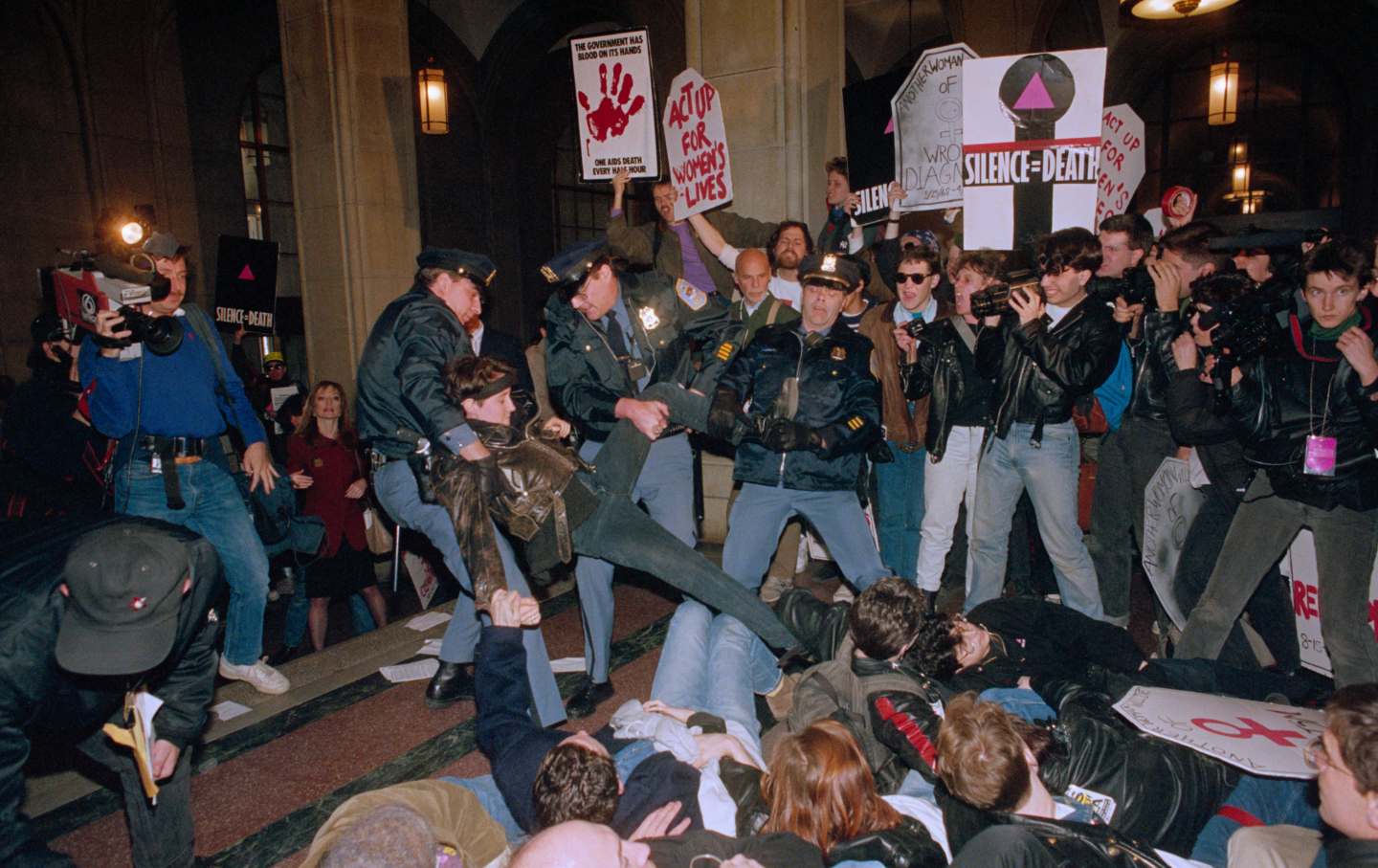What’s your “I am Spartacus” move to protect the more vulnerable, the targeted, the invisibled, the next-on-the-list?
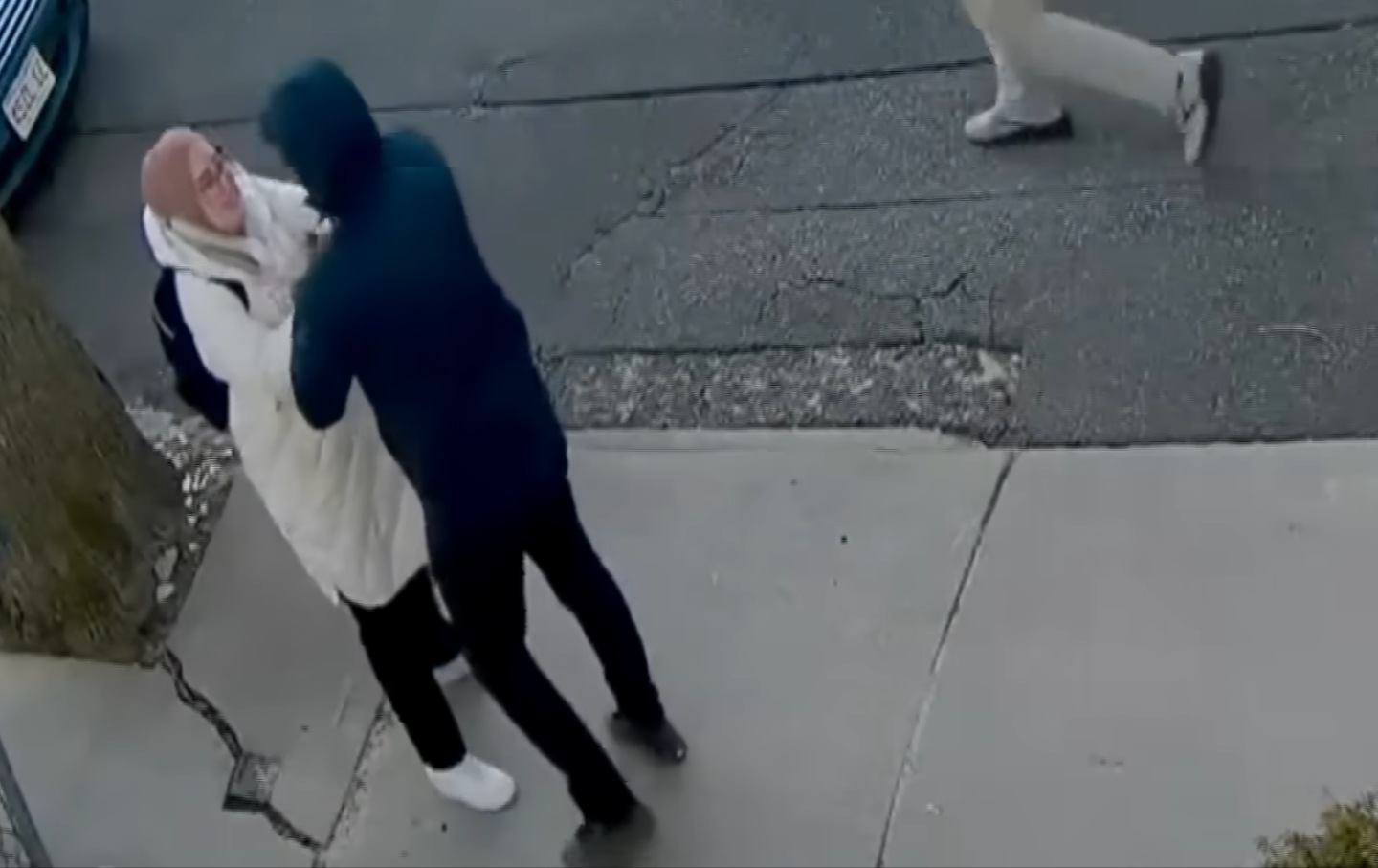
Rumeysa Ozturk being arrested by
ICE.(CBS News)
Tonight I opened Instagram on my iPhone and the very first thing it showed me was a video of Rumeysa Ozturk, a Turkish doctoral student at Tufts University, being arrested by ICE. Ozturk was walking on a sidewalk when a plainclothes officer in a pulled-up hoodie approached, grabbing her wrists as a second officer quickly came to snatch the cell phone from her hands. The officers towered over Ozturk. In seconds, more swarmed in.
The final line of Shirley Jackson’s “The Lottery”: “‘It isn’t fair, it isn’t right,’ Mrs. Hutchinson screamed, and then they were upon her.” It’s a story about a village that ritualistically stones a randomly selected citizen to death once a year.
Once Ozturk was in handcuffs, an officer pulled his shirt collar up to cover his face. The others followed suit. They looked suddenly like they’d just been served ortolan, like they needed to hide from God their ghoulish glee at disappearing a college student who, it was later reported, was walking to break Ramadan fast with her friends.
I watched the video as I walked into my home. Our cat Kocholo—Farsi for “little one”—was on the kitchen counter, eating from a knocked-over box of treats. Like Ozturk, I was fasting, returning from a work event well after iftar, and my sweet spouse, Paige, was already boiling water to make pasta so I could eat quickly. As I came through the doorway Paige said something I didn’t hear because I had restarted the video on my phone. I didn’t yet know Ozturk’s name.
What is the purpose of an app, owned by a man who cheered on the new regime at inauguration, that carousels these videos in between baby photos from casual acquaintances and ads for underwear and linen sheets?
What is the purpose of a government that disappears its people? Ozturk had a valid student visa, as did Alireza Doroudi, a doctoral student at the University of Alabama, and Mahmoud Khalil, a Columbia grad student, who were both disappeared in similar fashion this month.
The videos, the disappearings, are obvious intimidations intended to choke dissent, both in the specific cases of Ozturk, Doroudi, and Khalil, and in general, in the cases of all of us who look or pray or believe or vote like them. The Trump regime, like every despotic autocracy before it, is making examples of a few to terrify the many. Into what? Silence, compliance, submission? Anguish? Emily Dickinson on suffering: “It has no future—but itself.”
Trump’s peanut-munching, foam-fingered supporters love all the hard-line tactical cop kabuki. His opponents feel their outrage growing less defined with each new horror, their will to act growing sclerotic and cold. All of it serves the regime’s grisly status quo.
Iclosed the app and sat in a chair near Paige. But immediately, I remembered the video I saw two days ago: the father of Palestinian journalist Mohammad Mansour shouting over the body of his dead son: “Get up and talk.… Tell people, tell the world. You’re the one who tells people the truth.” He pushes a microphone into his son’s lifeless face and bawls.
Why am I seeing these videos? Remembering them, writing about them? What does it do to me, fasting for Ramadan? If the administration is communicating to me through social media—and of course it is; Zuckerberg and Musk own the algorithms, and Trump himself tweets like a manic child—then what am I being told? That I am here at their pleasure. That my presence is contingent on my docility, my good behavior.
I am writing this to rebuke good behavior.
I am writing this to rebuke the algorithm.
I am writing this to rebuke myself.
I want to act prophylactically before my fear (that I might be fired from my comfy and rewarding job, that the administration’s goons might come for me personally) eclipses my rage. My contempt. For systems that disappear and murder doctoral students and pacifist journalists, systems that bomb hospitals and starve children and abruptly freeze funding for global health programs.
Popular
“swipe left below to view more authors”Swipe →
But of course it is nonsensical to feel contempt for systems. Systems don’t disappear and murder people; people do. Such malice is corporeal—it requires individual actors with actual bodies, with hearts that could fit in my chest. Cruelty is a choice; nothing is inevitable but death.
So more specifically, I feel contempt for the administration, for every murderous whim they LARP, for responding to military attack orders with prayer hand emojis, for “accidentally canceling” critical Ebola prevention.
I hate their harm. I hate the countless rifts they’ve torn open across time as they preen for cameras and expand their bitcoin empires. But they don’t give a shit about me or my hate. My place of birth (Tehran) disqualifies me from concern. It also endangers me.
The stated reason for Ozturk’s detention: she coauthored an editorial in the Tufts student newspaper demanding that the university “acknowledge the Palestinian genocide,” behavior the Department of Homeland Security deemed “activities in support of” Hamas and “grounds for visa issuance to be terminated.” According to The New York Times, Ozturk was studying child development, specifically “how children understand concepts like death and life.”
They are coming for us. I’m a US citizen, a writer with a good job that pays me more than I need to feed and house myself. I’m safer than many—most, probably—who look and pray like me. That relative safety feels in my guts like a moral imperative. To what? To leverage the delta between my moral outrage and the disappeared’s terror, the bombed’s delirium, the starved’s desperate hunger, into action.
And to say it plain, I am scared. That the administration and its acolytes will target me specifically. It doesn’t feel that irrational. I’ve signed petitions, written letters, often say the words “Gaza” and “genocide” and “fascist” into hot mics. The administration’s algorithms of intimidation and terror are working.
This is, more than anything, a plea for principled leftists to rise en masse and not just decry but disrupt a nation helmed by gleeful genocideers. I’m writing frantically, aware my prose is ugly, overearnest, unvetted against worst-faith readers. It’s graceless, unlovely. So am I.
Tonight I want to be understood, not appreciated.
Ozturk, Douloudi, and Khalil were targeted not because they asserted their opposition to the Palestinian genocide—there are white American citizens organizing against Israel’s occupation too. Ozturk, Douloudi, and Khalil were targeted because they were on student visas; they were targeted because they could be targeted. The onus to protect is, should be, always on the relatively less vulnerable among us. The poet Aracelis Girmay: “& so to tenderness I add my action.”
It is excruciating to be the Muslim in every room forcing people to think about genocide, but I do not have the luxury of shitty cynicism or breezy despair.
Right now this second as I type, our cat Kocholo—the one on the kitchen counter naughtily stealing treats when I got home—is dying. He has a cancerous tumor on his liver that’s spread to his lungs. He will likely pass in the next few days. A line from Les Murray comes to me: “Tired from understanding life, the animals approach man to be mystified.” I sobbed just now typing it.
Years ago, Kocholo was a little gray dustball who turned up alone in a friend’s garage. We brought him home, and he’s slept in our bed every night since. He is a family member and we are heartbroken in the seismic, pulverizing way. It is excruciating to be writing this right now instead of curling up with Kocholo and Paige. These hours with him are precious. I am furious they have been stolen from us.
I know it is absurd to write about my cat with the same machine I use to write about genocide. But I am yoked to my subjectivity. I do not have one brain for thinking about a rubbled Gaza and another for thinking about my gentle cat wheezing through the night. There is, in every moment, an at-once-ness that language cannot accommodate. You will, I hope, forgive me my instruments.
I think about the children Ozturk was learning to help. The hours of tenderness stolen from them. I think about my father, whose beloved big sister is right now this second desperately fighting a serious cancer in Tehran. My father became an American citizen some years ago, but feels he cannot safely, under this regime, return to Iran to be with her. I want to hurl my laptop through the window typing that. The hours stolen from them. From Doroudi and Khalil and every soul domestic and abroad who has ever been stolen or stolen from by the American project.
We are all barreling from the infinity that preceded us into the infinity that will follow. No one can report from either side. The poet Franz Wright called them “twin eternities, some sort of wings.” Whether those eternities are filled with nothing or something is a matter for theologians. Either way, this is our one chance to be alive on the planet Earth. I want to spend my turn in rapturous baffled love. And justice, Cornel West famously asserted, is what love looks like in public.
So I am writing this before going to bed, where I will weep with Paige over our beautiful beloved cat and try to forgive myself for not being God. Tomorrow I will wake to eat before sunrise. I will speak with a friend new in sobriety, I will call my parents, I will talk to my students about Virginia Woolf, I will come home to hug Paige and the cat and feel very, very sad.
What will you do? Not the royal you, but you specifically? I want to say Jim, I want to say Shannon, like that thing in movies where the newscaster suddenly starts speaking directly to the hero using their real name.
I want to tell you powerlessness is an alibi. Hopelessness too. I want to ask, what specifically are you going to do? Tomorrow, the next day? What’s your “I am Spartacus” move to protect the more vulnerable, the targeted, the invisibled, the next-on-the-list?
I want to say, it’s your turn now, help. This is us asking you while we still can.
Donald Trump’s cruel and chaotic second term is just getting started. In his first month back in office, Trump and his lackey Elon Musk (or is it the other way around?) have proven that nothing is safe from sacrifice at the altar of unchecked power and riches.
Only robust independent journalism can cut through the noise and offer clear-eyed reporting and analysis based on principle and conscience. That’s what The Nation has done for 160 years and that’s what we’re doing now.
Our independent journalism doesn’t allow injustice to go unnoticed or unchallenged—nor will we abandon hope for a better world. Our writers, editors, and fact-checkers are working relentlessly to keep you informed and empowered when so much of the media fails to do so out of credulity, fear, or fealty.
The Nation has seen unprecedented times before. We draw strength and guidance from our history of principled progressive journalism in times of crisis, and we are committed to continuing this legacy today.
We’re aiming to raise $25,000 during our Spring Fundraising Campaign to ensure that we have the resources to expose the oligarchs and profiteers attempting to loot our republic. Stand for bold independent journalism and donate to support The Nation today.
Onward,
Katrina vanden Heuvel
Editorial Director and Publisher, The Nation
More from The Nation
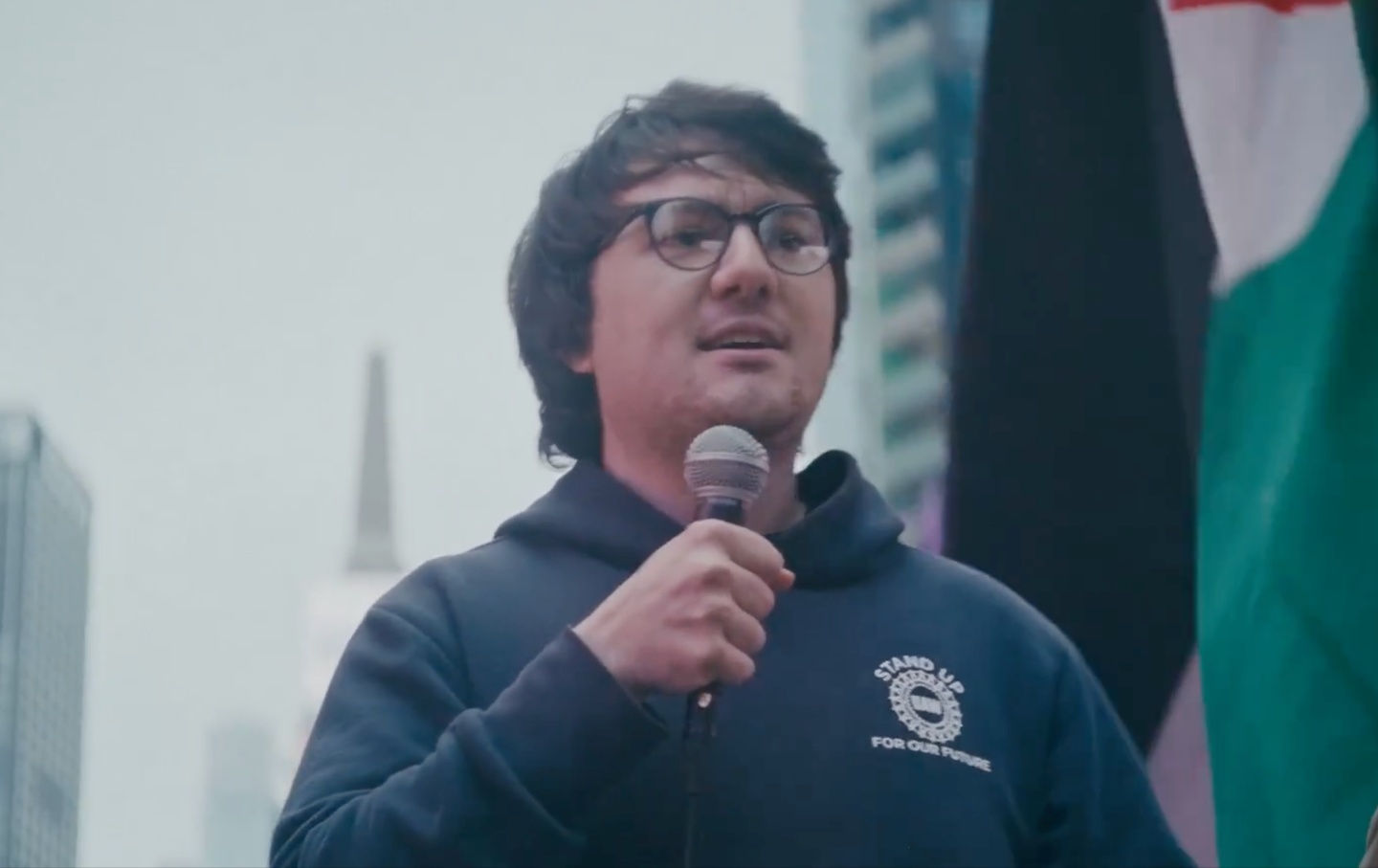
And neither will anyone else targeted by the university. We are not afraid, we are undeterred, and we will continue to fight.
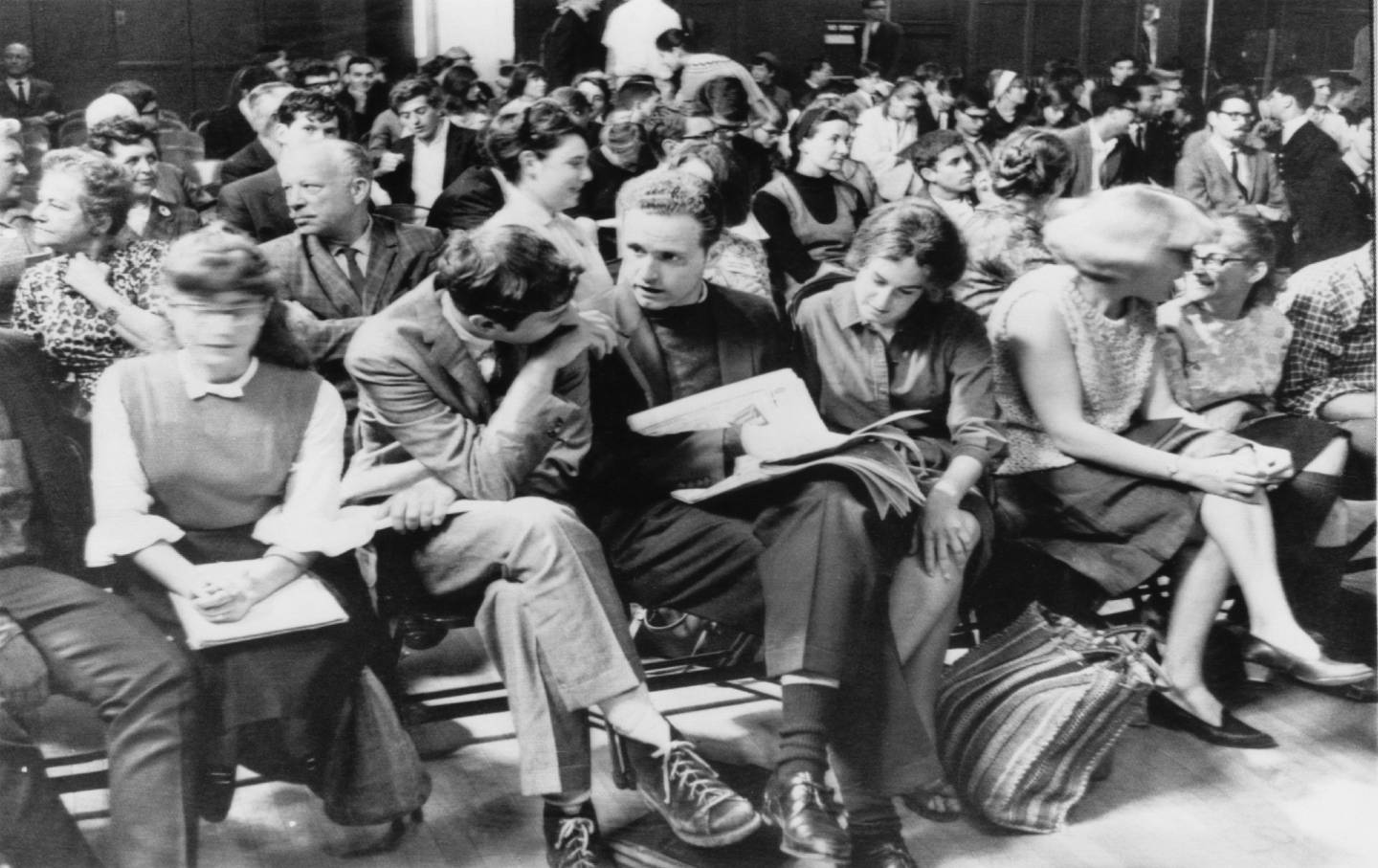
Donald Trump is showing us what an unaccountable class of corporate decision-makers looks like—and it looks like a lot of fear, and a terrible loss of freedom.
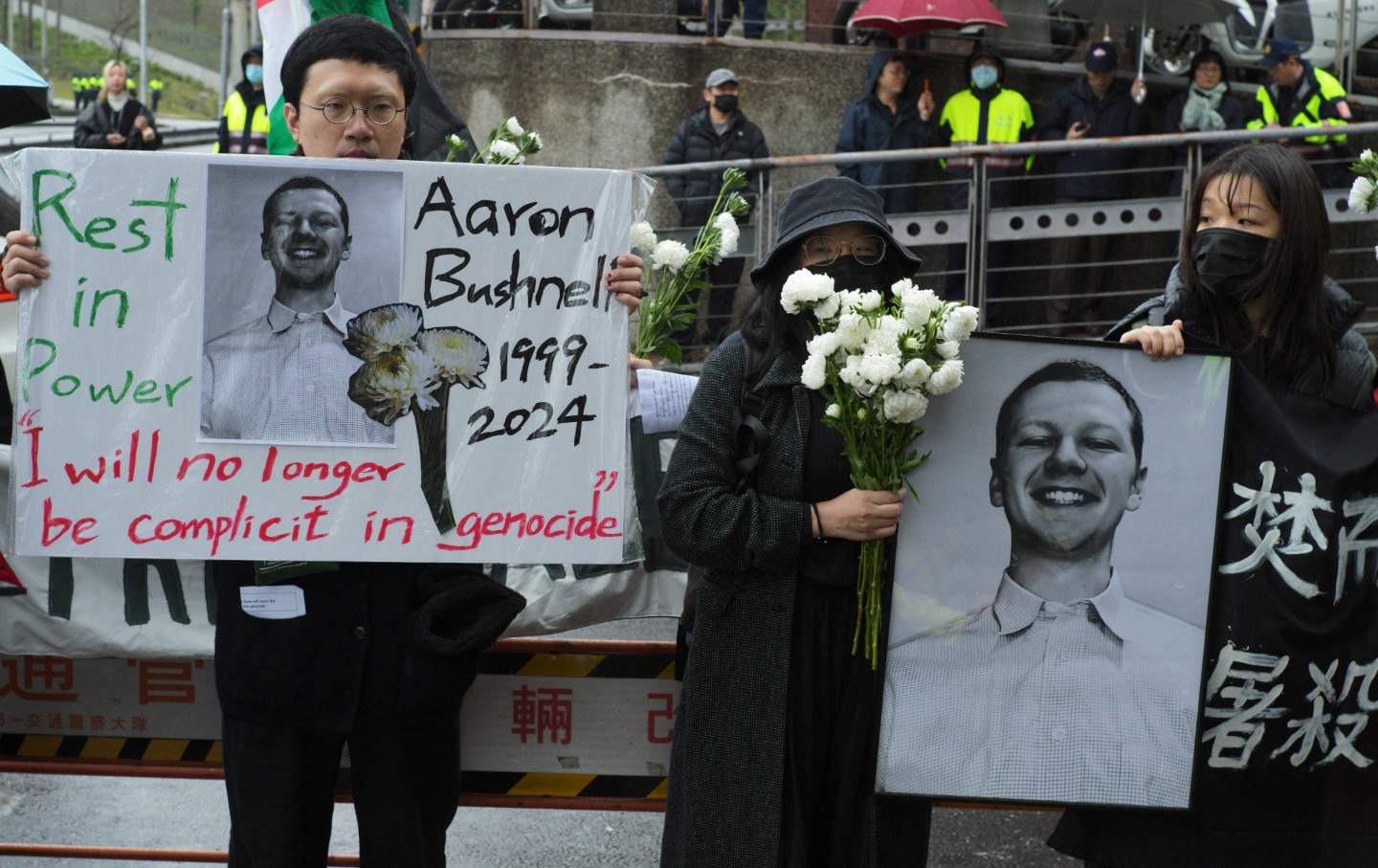
His protest was both a rejection of the idea that human life is expendable and an acknowledgment that, for so many, it already has been.
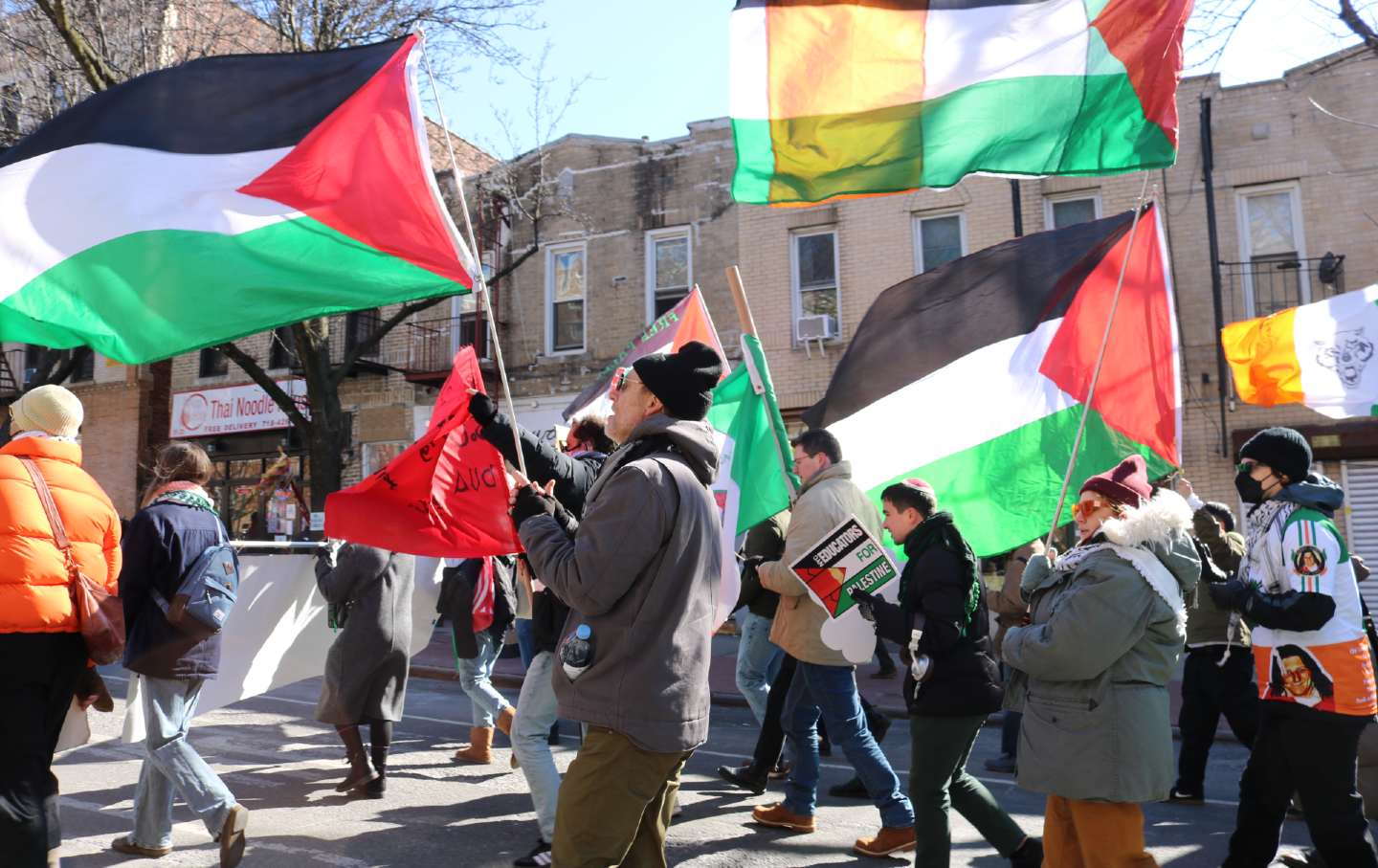
The St. Pat’s for All parade started when the more famous Fifth Avenue parade barred queer groups. Twenty-six years later, it welcomes Palestinian solidarity organizations.




